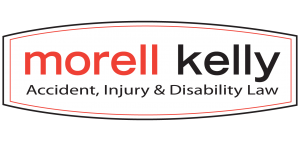How Licensed Paralegals Benefit Ontario Drivers
- March 20, 2015
- Lisa Morell
- No comments

With further changes anticipated to the Insurance Act in 2015 we must continue to find ways to adapt our practice to better serve our clients within the parameters of the Act. Almost immediately we must educate our clients that their compensation is going to be first and foremost determined by the provisions in the Insurance Act. It is always challenging to get clients to redirect their attention from their immediate needs to the bigger picture. When insurers refuse to pay benefits or fund treatments for our clients this reality is often incomprehensible to them.
Since September 1, 2010 motor vehicle collision accident benefit claimants have faced what are almost insurmountable hurdles including the reduction of the amount of statutory benefits available to claimants from $100,000.00 to $50,000.00 and the complete breakdown of FSCO (the mandated dispute resolution system). From a practical perspective this has meant that claimants need legal representation more than ever to assist them in navigating themselves through this bureaucratic mess and that because the amount of available benefits has been slashed there are less lawyers interested in doing the work.
Fortunately this has coincided with the paralegals being licenced and regulated by the Law Society of Upper Canada. This has opened up a wealth of opportunities for paralegals to work assisting lawyers in representing motor vehicle collision claimants. As for the most part motor vehicle claim files have two components: i.e. the accident benefit file which relates to your own insurer’s obligation to fund treatment and pay benefits; and the claim against the at fault driver for pain and suffering this presents a natural opportunity for a division of labour between paralegals and lawyers.
Mr. Kelly and I have immensely enjoyed sitting on the Professional Advisory Committee for Conestoga College. This has given us a new perspective as to the possibilities that have been opened up by Paralegals obtaining professional status and professional accreditation. As you might expect there is a great deal of variation in terms of quality and length of training offered by various colleges for paralegals. At Conestoga the program is a post-graduate program which means that candidates must have either a degree or diploma which makes it distinct from some shorter programs specifically targeted to specifically retrain individuals who have lost their jobs often in unrelated fields like manufacturing.
The biggest challenge is going to be to get lawyers to welcome paralegals into the profession. Not surprisingly there has been been some initial resistance. At this time alot of paralegals graduate anticipating a career in Highway Traffic court where they will face stiff competition from retired or former police officers who are already perceived as well seasoned with respect to Highway Traffic Act issues.
Our response has been to follow the American trend to embrace paralegals working in supportive roles with lawyers to best serve the needs of our clients. This approach is important not only to ensure growth and security within the Paralegal profession but most importantly to give us the flexibility we all need as professionals to serve the needs of our clients. We have found that in the context of a personal injury practice there are many opportunities for paralegals to assist in a variety of areas including FSCO tribunal work, medical reviews and trial preparation. We hope that our colleagues over the next few years will continue to consider how Paralegals could assist them in their practices, as this will assist everyone in keeping justice accessible to the citizens of the Province of Ontario.
